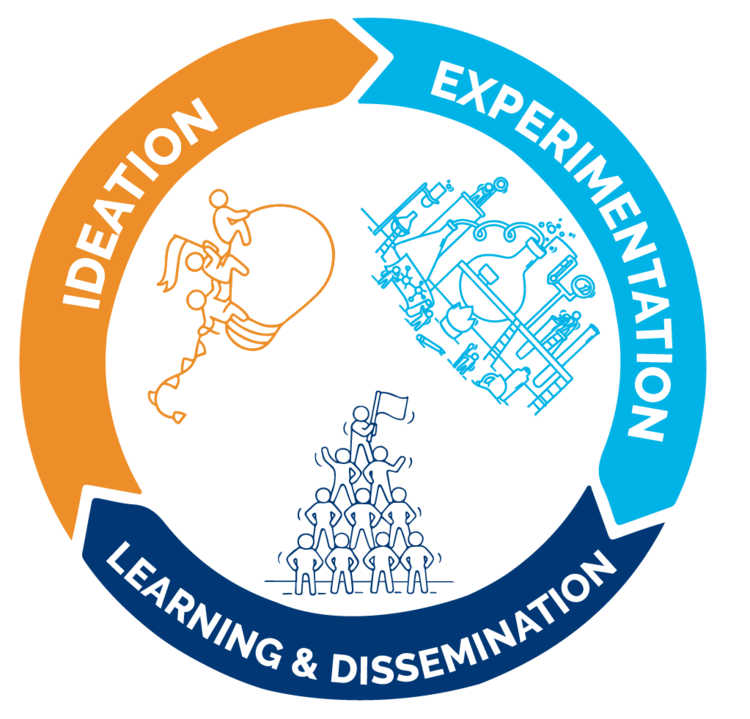In the realm of operational methodologies, JustLabs stands apart through its amalgamation of techniques and procedural frameworks, intertwining ideation/experimentation dynamics with research/learning paradigms. Divergent from traditional academic hubs, our exploration and learning endeavors are shaped and influenced by real-world experimentation and ideation. Departing from the modus operandi of advocacy NGOs, our objective lies in utilizing on-the-ground involvement to distill universal lessons and expand solutions across the entire spectrum. In essence, we validate our research and assumptions regarding efficacy through field experimentation, transforming our field experiences into the foundation for rigorous, pragmatic research and tools that subsequently serve as a collective asset for all.
The methodology we adhere to unfolds across three distinct phases: (1) ideation; (2) experimentation; and, (3) learning and dissemination. We contribute to the genesis of ideas and resolutions through two categories of undertakings. Initially, we harness the erudite experiences and analytical proficiencies of our team to conduct strategic research on the prevalent issue.

Aligned with our methodology, the knowledge we generate adopts a systemic and long-term perspective, through which we pinpoint concrete subjects and queries demanding short-term attention. Conforming to our collaborative and experimental ethos, the concepts and resolutions we put forth do not solely emanate from research. Crucially, they also emanate from a secondary source – the ideation and prototyping workshops (“labs”) that we orchestrate. JustLabs’ initiatives do not culminate with the formulation of promising responses to human rights challenges, for dual reasons. Firstly, unlike conventional consultancy entities, we perceive ourselves as integral to the human rights movement. Our leadership and numerous team members are established human rights researchers and practitioners.
This affords us the ability to adapt methodologies from diverse fields (such as design thinking), grounded in a profound comprehension of the necessities, frameworks, and language of human rights, fostering dependable collaborations among human rights stakeholders who consider us part of their community. Secondly, deviating from the norm of most academic research centers, our approach to generating and disseminating knowledge is profoundly experimental.
We endorse learning through action, implementing and scrutinizing the most promising initiatives arising from our ideation workshops and background research. As underscored earlier, our endeavors aim to benefit the entire field, extending beyond the entities or backers directly involved in ideation and experimentation phases. Consequently, we invest substantial time and effort into disseminating the knowledge stemming from design and implementation activities, as well as our proprietary research. Furthermore, we deliberately partake in alliances aimed at amplifying promising initiatives, facilitating their adoption by human rights stakeholders – from international organizations, coalitions, and funders to national and local entities.
